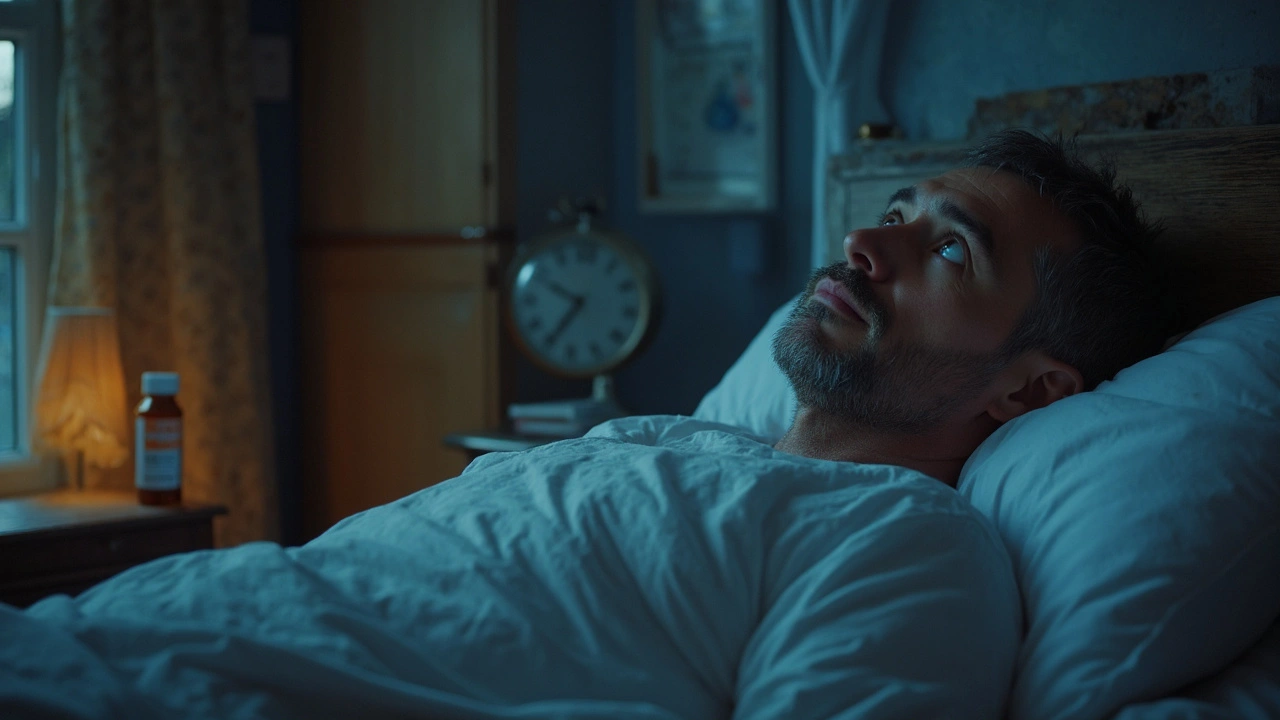Atorvastatin sleep issues: why your nights might change
Waking up more, having vivid dreams, or feeling unrested after taking atorvastatin? You’re not alone. Some people report sleep problems after starting this statin. The good news: there are simple steps you can try before worrying — and clear signs when you should call your doctor.
How atorvastatin can affect sleep
Atorvastatin lowers cholesterol by blocking an enzyme in the liver. Because it’s relatively lipophilic (it can cross the blood-brain barrier more easily than some other statins), it may influence the brain in ways that change sleep. Reports range from trouble falling asleep to vivid or unpleasant dreams and fragmented sleep. Small studies and case reports support these links, though not everyone experiences them.
Other reasons atorvastatin might hurt sleep are indirect: muscle aches or cramps at night, low CoQ10 levels causing fatigue or discomfort, or drug interactions that raise atorvastatin blood levels. For example, grapefruit or certain other meds can boost how much atorvastatin your body gets, which can increase side effects.
Practical steps to try right now
1) Try changing the time: Atorvastatin has a long half-life, so taking it in the morning instead of at night sometimes reduces sleep complaints. Don’t switch without checking the label or your pharmacist, but many people find a timing change helps.
2) Check other causes: Caffeine, stress, sleep apnea, or new antidepressants can also change sleep. Make sure the statin is the likely cause before making changes.
3) Improve sleep habits: Keep a cool, dark bedroom, stick to a sleep schedule, and avoid screens before bed. These basics often reduce mild sleep disruption.
4) Discuss supplements cautiously: Some people try CoQ10 to ease muscle discomfort — evidence is mixed but it’s generally low-risk. Melatonin can help short-term sleep problems, but ask your doctor first, especially if you take other meds.
5) Review interactions: Avoid grapefruit and tell your clinician about all your medicines. Drug interactions can raise atorvastatin levels and make side effects worse.
If sleep problems are new, start after your statin began, and other causes don’t fit, talk to your prescriber. They may lower the dose, switch you to a more hydrophilic statin (like pravastatin or rosuvastatin), or recommend other fixes. Don’t stop taking atorvastatin suddenly — doing so can raise your risk for heart problems.
Seek urgent help if you get severe muscle pain, weakness, dark urine, or new thoughts of harming yourself. Those are signs you need immediate medical review.
Final tip: keep a short sleep log for a week — note when you take the drug, when you sleep, and any dreams or night symptoms. That record makes it much easier for your doctor to decide the next step.

Do Statins Affect Sleep? The Truth About Statins and Sleep Quality
Statins help lower cholesterol, but do they affect your sleep? This article digs deep into the science and real-life experiences around statins and sleep quality. You'll learn about their impact on REM cycles, why some people struggle with insomnia or daytime tiredness, and tips for managing these issues. Get practical advice and find out where to read more on coping with statin-related sleep problems.
